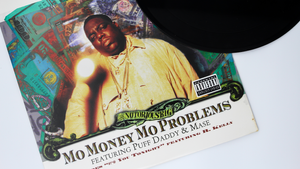A legal battle between the estate of the Notorious BIG and photographer Chi Modu has been settled. The dispute was prompted by photos of the late rapper being used on skateboards and shower curtains.
Legally speaking, the case centred on the increasingly topical issue of publicity rights. Modu took photos of the late rapper - real name Christopher Wallace - in front of New York's World Trade Centre in 1996. In recent years those images have been used on various products, including snowboards, skateboards and shower curtains, and as part of an NFT drop.
Modu owned the copyright in the photos. However, Wallace's estate argued that using the images on products of that nature also exploited the rapper's publicity rights and, to that end, they filed a lawsuit in 2019. Modu then died in 2021, but the litigation continued with his estate as defendant.
According to Billboard, in June 2022 the judge overseeing the case concluded that Wallace's publicity rights likely were being infringed by the products that featured Modu's photos. The judge did confirm that - as the copyright owner - the Modu estate could sell prints and digital copies of the images, but said that using those photos on merchandise products likely required permission from the Wallace estate.
With that in mind, the judge issued a preliminary injunction against the Modu estate. However, the legal battle continued and was due to get to trial next month. But a filing with the court last week confirmed that a settlement has now been reached.
A legal rep for the Wallace estate, Staci Jennifer Trager, told Billboard: “Pictures of Christopher cannot be commercially exploited without a licence from our client. The settlement agreement is a testament to the dedication of our client as well as our team members in staying the course over several years".
Publicity rights - sometimes called personality, image or likeness rights - have been in the spotlight recently in the context of AI, because it is hoped they will allow artists to control the use of their voice, including in AI-generated vocal clones. However, these rights are also important for artists seeking to control the use of their image on merchandise, especially when - as in this case - third parties own the copyright in photographs in which they feature.
UK law doesn't currently provide any publicity rights. Although when it comes to merchandise, artists can sometimes rely on the legal concept of passing off.
In 2015, Rihanna successfully sued Topshop over its sale of t-shirts featuring her image. The retailer had licensed the use of a photo of the musician from a photographer, but Rihanna successfully argued that customers would assume she had endorsed the t-shirts, and therefore Topshop was passing off unofficial clothing as official merchandise.
However, passing off does not provide all the same protection as publicity rights. As a result, and especially with the increased interest in AI-generated vocal clones, many in the UK music community are now calling for a publicity right to be introduced into UK law.

